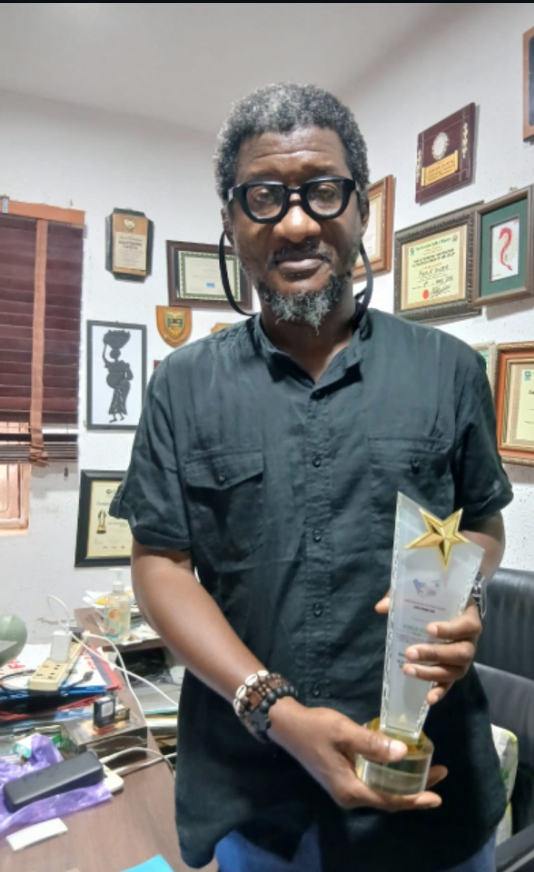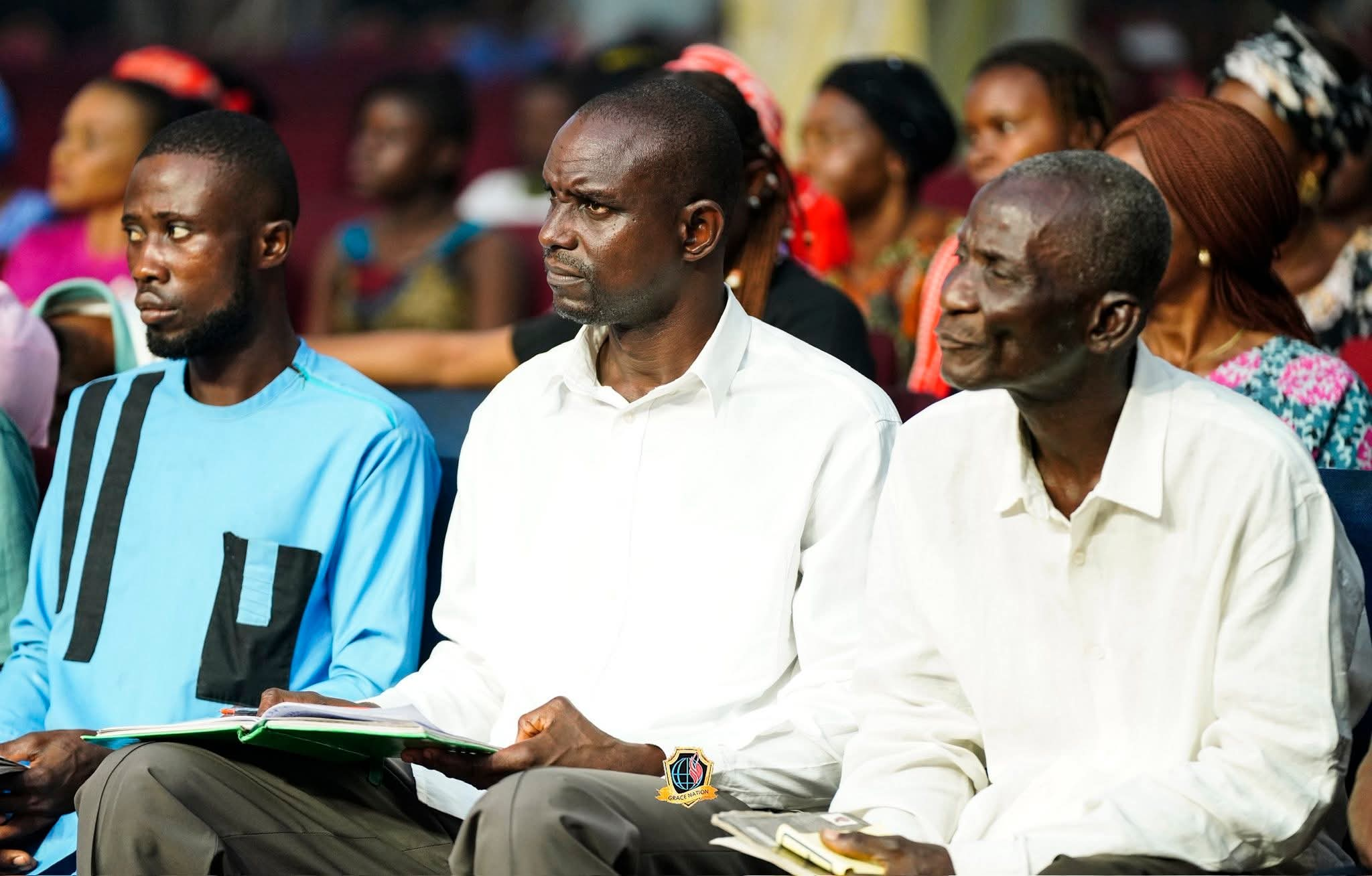celebrity radar - gossips
Faulty Security Strategies: NAOSRE Aligns With PWC’s Model Over Zamfara Bad Example

Faulty Security Strategies: NAOSRE Aligns With PWC’s Model Over Zamfara Bad Example
NAOSRE– In what seems a classical imperceptive strategy, resulting in monumental killings, kidnapping, and showcasing Zamfara State as a bad example in the counter-insurgency campaigns, NAOSRE calls on government and Service Chiefs to live up to expectations and inject fresh blood into tired veins
Worried by the unending insecurity in Nigeria with a specific focus on Zamfara State, the National Association of Online Security Reporters, NAOSRE, during the week, undertook an overview of the various strategies adopted by security agencies to tackle insurgency as well as the mode of implementations.
Amongst other things, the association reviewed the September 4 memo signed by the Executive Vice-Chairman of the Nigerian Communications Commission, NCC, Professor Umar Danbatta, addressed to telecom operators directing the immediate shutdown of all telecommunications services in Zamfara state.
The memo, NAOSRE gathered, was a response to Zamfara Governor’s request to the Ministry of Communications and Digital Economy.
In the letter titled, “Re: Shutdown of all telecom sites in Zamfara State”, the NCC stated that the shutdown, which lasted from September 3 to September 17 in the first instance, was to enable relevant security agencies to carry out required activities towards addressing the security challenge in the state.
Following such instruction, over 240 base stations were shut down in the 25 years old State which has a landmass of 15,352 square miles, a population of 4,353,533 with 2,177,431 and 1,592,746 active voice and internet subscribers respectively.
However, NAOSRE’s Intelligent and Research Unit, NIRU, sadly discovered that the results from such a strategic shutdown have been a monumental disaster, killings, and kidnapping.
For instance, in the narratives of Sarkin Shanu of Shinkafi, Dr. Suleiman Shuaibu, about eight villages have been attacked and over 400 people either killed or abducted by the bandits.
The community leader who maintained that bandits are still killing the residents lamented the acute shortage of security personnel saying that about 150 villages have less than 50 soldiers and policemen providing security.
More worrisome is the fact that these unchallenged killings and kidnapping in Zamfara have made nonsense of whatever strategy behind the shutting down of the communication system given that the initiative has further added burden to Zamfara citizens who now travel to Sokoto State to make calls.
“We go to Sokoto to make telephone calls. We take transport from here in Shinkafi through bad roads and travel to Sokoto to make telephone calls just to let the world know what is happening, to speak to those we believe can save us and for the world to hear,” lamented Dr. Shuaibu.
Also, figures obtained from the Nigeria Security Tracker, a project of the Council on Foreign Relations, an American think tank, and edited by a former United States Ambassador to Nigeria, John Campbell, showed that abductions and killings have continued in Zamfara State unabated.
According to available figures, bandits also killed four in Bugundu area of the State, after attacking a police station.
On September 11, bandits killed 12 soldiers in Mutumji, Maru Local Government Area. They also killed seven civilians in Shinkafi and Zurmi Local Government Areas on September 16, burning down the home of the Speaker of the State House of Assembly, Nasiru Magarya, at Magarya community.
Apart from NAOSRE, this sad development has also arrested the attention of other experts.
Speaking with Punch correspondent, Fiscal Policy Partner, and Africa Tax Leader at PriceWaterhouseCoopers, Mr. Taiwo Oyedele, noted that shutting down base stations is counter-productive stressing that rather than shut down telecommunications, it should be used in tracking bandits.
He said, “With the insecurity, we have around the country, I struggle to see why you need to shut down base stations because you don’t want terrorists and bandits to call one another to arrange attacks when there is another option of allowing them to make the calls and then you track what they are saying.
“So, there are countries where words have been made into algorithms. So, you make a call and you just mention that word, it flags your phone and the authorities start monitoring all that you are doing. If they said some villagers are calling bandits and giving them information, you monitor them. That is simple. You can monitor what people are saying.
“So, when they said some bandits kidnapped schoolchildren and wanted bicycles or motorbikes, I said wow. That is a very good opportunity; just plant trackers and recorders. It makes it easy so that for one or two weeks you are gathering data and intelligence on where they are, who they are talking to and how many people are there.”
Oyedele added that Nigeria needs to change its way of tackling issues. “This approach in Nigeria that you cut off the head once there is a headache can never solve the problem,” he said.
Reacting on Sunday through a statement signed by its National President, Comrade Femi Oyewale, NAOSRE queried the decadent military strategy that orchestrated shut down of telephony services which seem to serve only the warped promoters of Boko Haram while Zamfara State sinks deeper into irretrievable security suffocation and development inertia.
He lamented that the first-hand narratives in the counter-insurgency struggle in Zamfara indicate that the once peaceful state is currently drenched in the blood of innocent humans.
“NAOSRE is heavily grieved for those who have lost their lives or were injured in the renewed devastating onslaughts against innocent citizens in Zamfara State.
“Our deepest sympathies go to the families and loved ones of victims for none should be made to pay such a dear price.
“As an association,” Oyewale noted “We have been in the forefront in entrenching sustainable depth to the relationship between government, security agencies, and the governed with the aim to enhance a more compassionate and progressive society.
“We hereby call again on government, once again, to fish out sponsors and other individuals behind these unacceptable policy somersaults, resulting in an unnecessary waste of citizens including those seeking to stoke and manipulate the people’s anger in order to advance political objectives.
“NAOSRE hereby aligns with the position of PriceWaterhouseCoopers’ Taiwo Oyedele for government and security agencies to be guarded in the deployment of technology to end the insurgency.
“The cooperative and productive embrace between the people and government which NAOSRE has championed should serve as an added oxygen for security agents to override counterproductive strategies,” he stated
celebrity radar - gossips
Another Feather for Nollywood Icon Fidelis Duker

**Another Feather for Nollywood Icon Fidelis Duker
*Lagos, Nigeria* — In a remarkable celebration of artistic achievement, renowned Nollywood figure Fidelis Duker received yet another prestigious accolade last weekend, solidifying his role as a key player in the growth of the Nigerian and African film industries. The award was presented in a ceremony held at Duker’s Lagos office by esteemed film and theatre director, Mr. Alex Eyengho, founder of the Warri International Film Festival, alongside Marketing and Strategy Director, Mrs. Matel Eyengho.
The recent recognition builds upon Duker’s previous achievement at last year’s ECOFEST in Dakar, where he was honored with a Lifetime Achievement Award. This latest accolade is a testament to his unwavering dedication and substantial contributions to the cinematic landscape.
“I am truly humbled by this recognition,” Duker expressed during the event. In his speech, Alex Eyengho lauded Duker’s pioneering efforts in establishing significant film festivals in Nigeria, particularly the Abuja International Film Festival, which has played a vital role in promoting local talent and storytelling.
Eyengho emphasized, “Fidelis has not only paved the way for emerging filmmakers but has also helped elevate Nigerian cinema on the global stage. His creative vision and commitment inspire all of us in the industry.”
As Duker reflects on this honor, he acknowledges the importance of teamwork and collaboration in achieving success. “This acknowledgment reaffirms to my team and me that our work is being observed, and it motivates us to continue contributing to the development of our sector,” he stated.
With numerous projects on the horizon, Duker remains a relentless advocate for the growth and recognition of African cinema. His latest recognition is yet another testament to the vibrant and evolving landscape of Nollywood, as industry leaders like him continue to inspire future generations.
As the film industry anticipates the next phase of development, Duker’s continued influence signals a promising future for filmmakers in Nigeria and across the continent.
celebrity radar - gossips
E‑Money’s Grand Gesture: A Closer Look at the SUV Gift to Chinedu “Aki” Ikedieze

E‑Money’s Grand Gesture: A Closer Look at the SUV Gift to Chinedu “Aki” Ikedieze
By George Omagbemi Sylvester | Published by SaharaWeeklyNG
“Public Generosity, Celebrity Loyalty and the Symbolism of Wealth in Nigeria’s Entertainment Elite.”
On Tuesday, February 17, 2026, Nigerian billionaire and entrepreneur Emeka Okonkwo, widely known as E‑Money, once again captured national attention with a lavish and highly publicised act of generosity, gifting a brand‑new 2024/2025 Ford SUV to veteran Nollywood actor Chinedu Ikedieze, affectionately called Aki, during his high‑profile birthday celebration.
The event, held in Lagos amidst a constellation of entertainers, business figures and socialites, was itself part of an annual tradition in which E‑Money marks his birthday (on February 18) with large‑scale giveaways and spectacular shows of material philanthropy. This year, he announced the gift of over 30 cars to friends, staff and family, a gesture that quickly went viral as videos and images circulated across social media platforms.
In the case of Ikedieze, E‑Money’s gift appeared to be deeply personal. During the festivities, E‑Money stood beside his elder brother, Grammy‑nominated musician KCee and recounted how Ikedieze stood by him at his 2007 wedding. The billionaire explained that the SUV was a “token of appreciation” for the enduring support the actor had shown over the years which is a narrative that blends friendship with public celebration.
Ikedieze, a Nollywood staple with a career spanning more than two decades and over 150 film credits, including the iconic Aki na Ukwa franchise, visibly reacted with humble surprise as he received the vehicle, bowing his head in respect and gratitude. The actor later shared the moment on his Instagram account with a caption celebrating the gift, further fuelling online engagement around the event.
Beyond the spectacle, this incident underscores evolving dynamics in Nigerian celebrity culture and the intersection of wealth, influence and reciprocity. Sociologist Dr. Chinedum Uche of the University of Lagos, speaking on the broader implications of such high‑profile gifts, notes: “Philanthropy that is highly publicised can reinforce social bonds, but it also reflects a culture where generosity is intertwined with reputation economy; where giving becomes as much a social signal as it is an act of kindness.” The quote highlights how public acts of wealth transfer among elites serve layered social functions that extend beyond pure altruism.
Critics of such displays argue that ostentatious giveaways, particularly in a country with stark economic disparities, risk amplifying social envy and exacerbating perceptions of inequality. Economist Dr. Ifunanya Nwosu from the Lagos Business School observes: “In societies marked by economic stratification, celebrity largesse may inspire admiration, but it can also inadvertently highlight structural inequities; prompting questions about systemic investment in public welfare versus individual generosity.”
Still, supporters maintain that E‑Money’s annual tradition (which has in past years included cash gifts to his brother KCee, comedians and even domestic staff) reflects genuine gratitude and a commitment to uplifting his immediate circle, albeit within the private sphere.
For Ikedieze, the SUV stands both as a heartfelt gesture from a longtime friend and a public affirmation of their enduring relationship. As the video of the moment continues to circulate, the broader narrative has ignited discussions about the role of private wealth in public life, celebrity culture and how acts of giving are interpreted in contemporary Nigerian society.
In a landscape where influence and generosity often play out in equal measure on public stages, E‑Money’s gift to Aki is more than a headline, it is a flashpoint in ongoing debates about wealth, friendship and visibility in Nigeria’s entertainment and entrepreneurial ecosystem.
celebrity radar - gossips
Spiritual Reality: Wicked People Are Possessed by Wicked Spirits — Dr. Christian Okafor

Spiritual Reality: Wicked People Are
Possessed by Wicked Spirits — Dr. Christian Okafor
…..“You don’t need to offend them before they attack you.”
…..“Your only true help comes from God.”
Demons are strategic and calculating. They detect threats quickly and position themselves to resist any power that may expose or overpower them.
According to the Generational Prophet and Senior Pastor of Grace Nation Global, Christian Okafor, spiritual intelligence operates both in light and in darkness—and believers must understand this reality.
Dr. Okafor delivered this message on Thursday, February 19, 2026, during the midweek Prophetic, Healing, Deliverance and Solutions Service (PHDS) held at the international headquarters of Grace Nation Worldwide in Ojodu Berger, Lagos, Nigeria.
The Operations of Demons
Teaching on the subject “Spiritual Reality” with the subtitle “Operations of Demons,” the Man of God explained that when demons possess individuals, their behavior changes. Such people may attack, bully, or resist those sent by God to help them, unknowingly rejecting divine assistance and prolonging their struggles.
“You don’t need to offend a demon before it attacks you,” he said. “What you carry is enough to provoke opposition. The greater your potential, the greater the battle.”
Dr. Okafor noted that many believers misinterpret battles as signs that God has abandoned them. However, he explained that some battles are permitted for growth, training, and divine glorification.
According to him, God may allow certain confrontations so that believers understand spiritual warfare and emerge stronger.
“Some battles are necessary,” he emphasized. “They push you into your turning point.”
He further stated that God does not respond to lies, blackmail, or bullying. He responds to His Word. Therefore, opposition is not proof of God’s absence, but often evidence of destiny at work.
The Weapon Against Demonic Attacks
Addressing solutions, Dr. Okafor described prayer as the strongest weapon against satanic operations.
“Prayer is the license that invites God into your battles,” he declared. “God does not intrude—He responds to invitation.”
According to the Apostle of Altars, understanding the principles and discipline of prayer enables believers to receive divine strategies for overcoming demonic resistance. Without prayer, he warned, spiritual help cannot be activated.
“You cannot receive help without God,” he concluded. “And you cannot engage God without prayer.”
Manifestations at the Service
The midweek gathering was marked by a strong move of the Spirit, with testimonies of deliverance, miracles, restoration, and solutions to various challenges presented before God. Several individuals reportedly committed their lives to Christ during the service.
-

 celebrity radar - gossips6 months ago
celebrity radar - gossips6 months agoWhy Babangida’s Hilltop Home Became Nigeria’s Political “Mecca”
-

 society6 months ago
society6 months agoPower is a Loan, Not a Possession: The Sacred Duty of Planting People
-

 society5 months ago
society5 months agoReligion: Africa’s Oldest Weapon of Enslavement and the Forgotten Truth
-

 news6 months ago
news6 months agoTHE APPOINTMENT OF WASIU AYINDE BY THE FEDERAL GOVERNMENT AS AN AMBASSADOR SOUNDS EMBARRASSING










